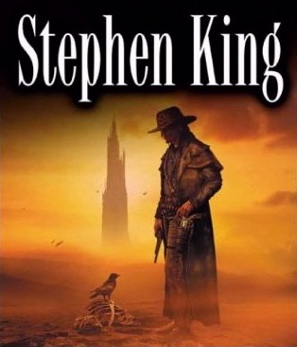
Newsweek just performed a fascinating experiment. They contacted America’s best-known authors, and asked them how the Kindle and digital readers are affecting the future of reading! (“The transformation of the book industry has reached a tipping point,” they wrote in their introduction. “Electronic books now outsell paperbacks on Amazon, the retailer recently announced. And Borders, the second-largest bookstore chain in the United States, is reportedly considering a bankruptcy filing…”)
I’ve also got my own collection of favorite authors, and the things that they’ve said about ebooks and Kindles. For example, Stephen King actually owns a Kindle, and in an October interview said he uses it now for about half the books that he’s reading.
I think it changes the reading experience, that it’s a little more ephemeral. And it’s tougher if you misplace a character. But I downloaded one 700-page book onto my Kindle that I was using for research. It didn’t have an index, but I was able to search by key words. And that’s something no physical book can do.
The interview was conducted by the Wall Street Journal, who had asked some tough questions about the business of books.
Q: Is the future of publishing all digital?It’s a hard subject to get a handle on. People like myself who grew up with books have a prejudice towards them. I think a lot of critics would argue that the Kindle is the right place for a lot of books that are disposable, books that are read on the plane. That might include my own books, if not all, then some.
Any drawbacks?
I wonder if one or two atom bombs went off, would electromagnetic pulses erase the world’s reading material from the servers where they are stored?
But Newsweek tracked some even bigger names, including Dave Eggers, the author of A Heartbreaking Work of Staggering Genius. Even though he’s 23 years younger than Stephen King, Eggers is more committed to the physical book, perhaps because he’s also the founder of the McSweeney’s publishing house.
EGGERS: I don’t own an e-reader, and I’ve never read a page on an e-reader. I do everything I can to avoid more screen time.I don’t think e-books have topped 10 percent of the market. My guess is that it will be about 15 to 20 percent of the market, because e-readers are expensive, and they’ll continue to be expensive.
Not to diminish the value of a paperback, when it comes to somebody investing in a hardcover, it’s something you want to keep. Everything from a cloth-case wrap to a leatherette to a foil-stamped cover, heavier paper, better binding, innovative cover design. You have to give readers a choice, between a richer experience with paper and board and cloth, and a more sterile experience through an electronic reader. We just try to make every aspect of the physical book as good as it can possibly be, because that’s our greatest hedge against the dominance of e-books.
My favorite reaction came when Newsweek spoke to 72-year-old Joyce Carol Oates, who has written three different novels which were nominated for a Pulitzer Prize (including Blonde, a recreation of the life of Marilyn Monroe written in 2000). Her response?
My husband, Charlie, is a neuroscientist, and of course he immediately ordered both the Kindle and iPad. When we travel, we read books and The New York Times on the iPad.I’d much rather have a book.
I thought Newsweek did a really classy thing, by taking their question all the way to the head librarian at America’s Library of Congress. 81-year-old James H. Billington is only the 13th person to hold that position, and he obviously grew up reading books, as a student at both Princeton and Oxford. So what did he have to say about ebooks?
BILLINGTON: The new immigrants don’t shoot the old inhabitants when they come in. One technology tends to supplement rather than supplant. How you read is not as important as: will you read?And will you read something that’s a book – the sustained train of thought of one person speaking to another?